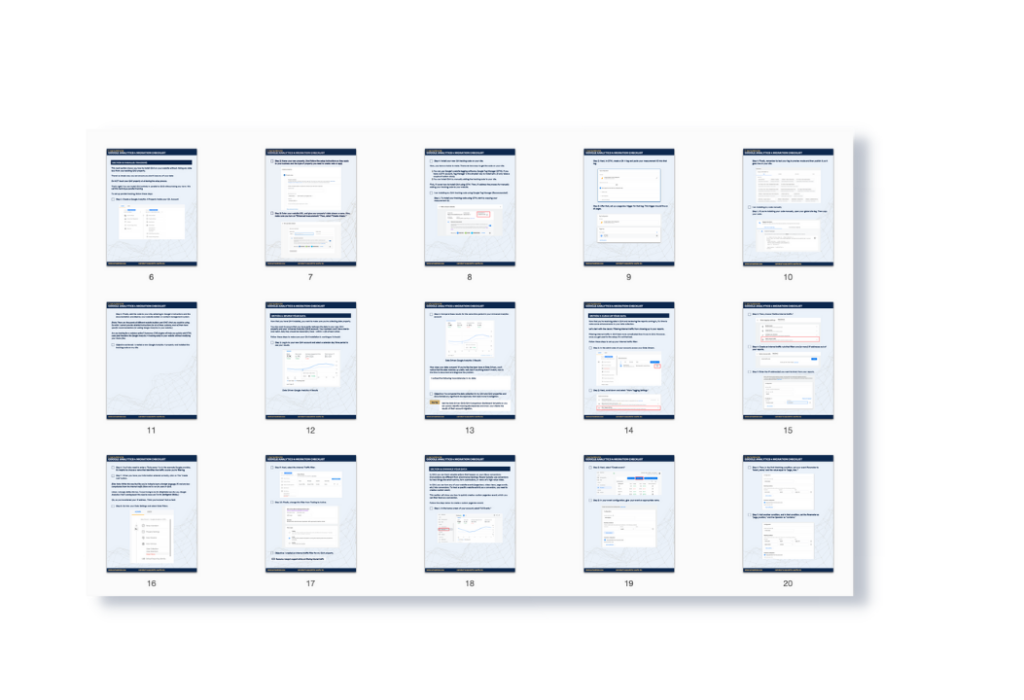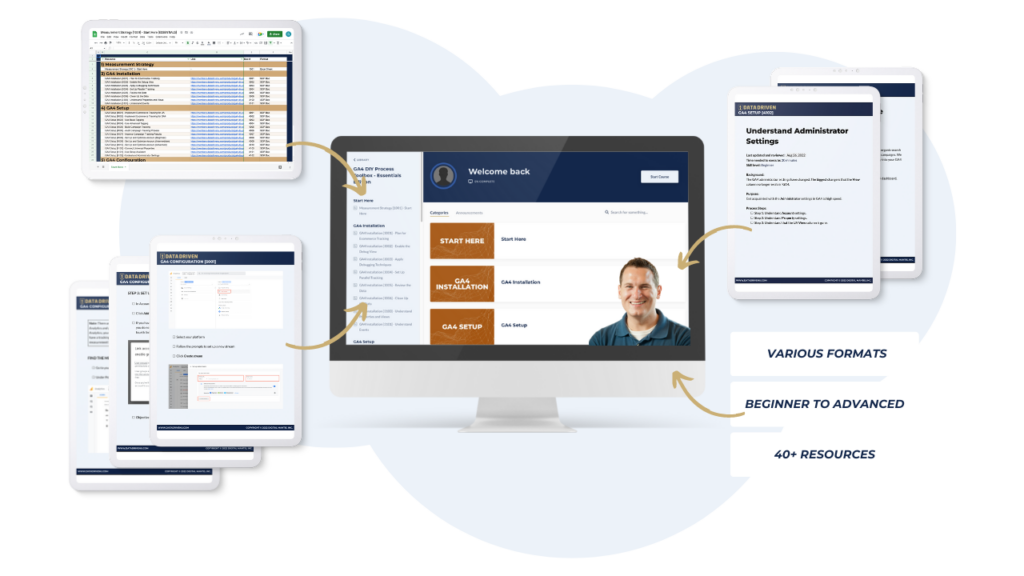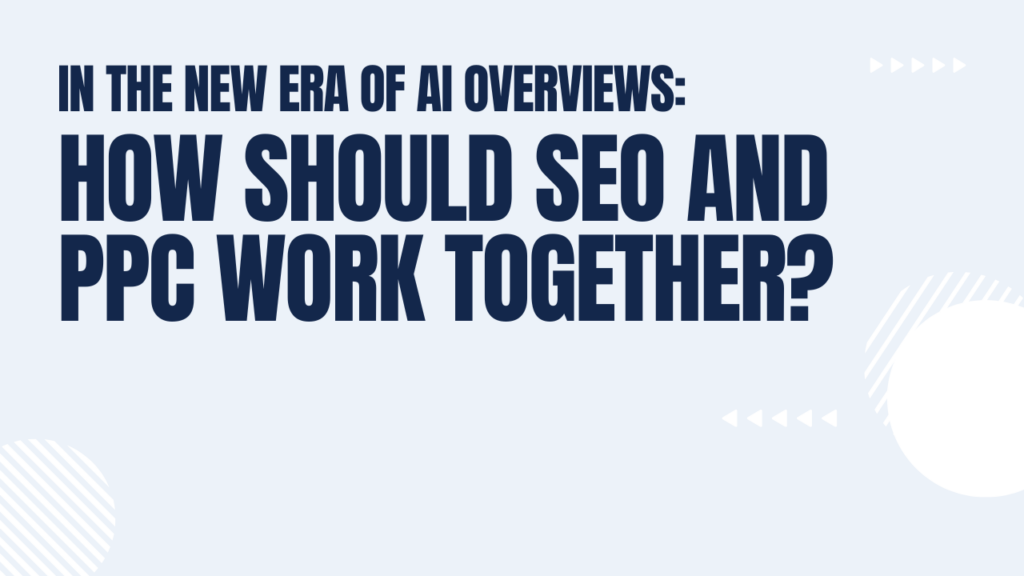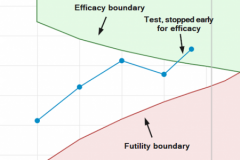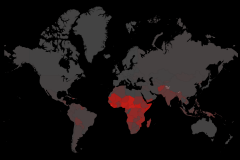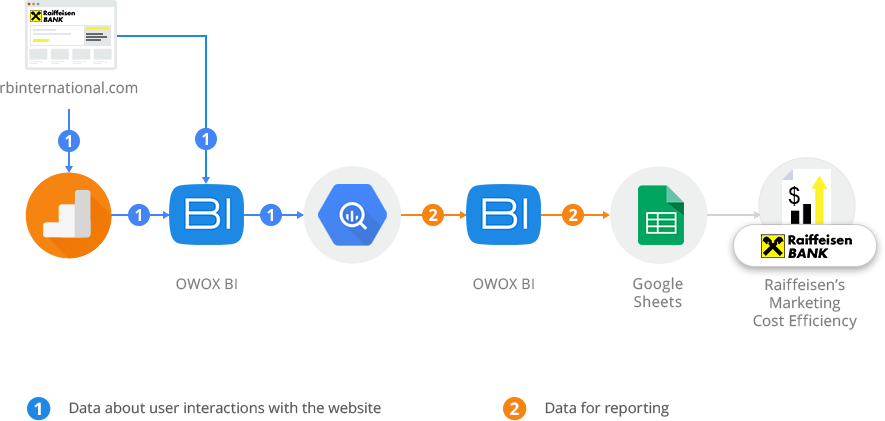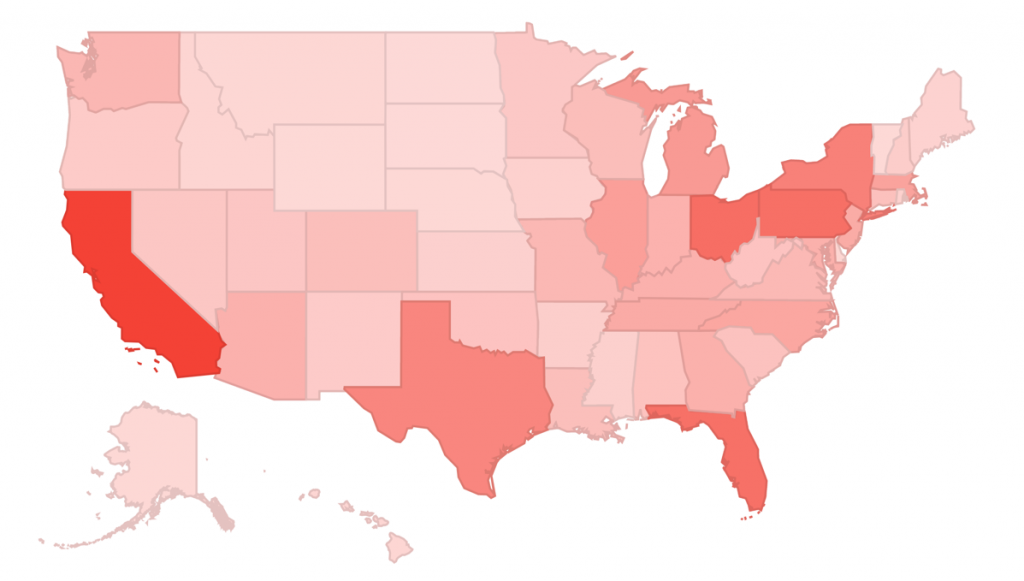Some weeks ago I had a chat with Daniel Waisberg and he asked me if I had any "data that estimates the value of analytics as a whole to businesses in Germany?" I replied only by the next day "No idea if such exists. But I can have a look. Any deadline?". The reply arrived almost immediately: "well, in 1:30 hrs!"
Unfortunately this is not a story on how to answer questions in time, or at all. But this was how our conversation started about the state of Web Analytics in Germany (which is currently of interest out of Germany, how nice!).
I proposed to collect some Web Analytics (WA) experts' opinions and thoughts. Daniel and I created a few questions about legal, business, and the users' perspective when it comes to Web Analytics. Then I emailed German Web Analytics thought leaders (vendors, consultants and practitioners) and kindly asked for their feedback. I edited all the responses I got and below I present some of the most remarkable quotes (I have annexed the questions in the end of the article for reference).
A short overview of the professionals we interviewed:
- Timo von Focht, Country Manager (DE-CH-AT) at AT Internet, Munich
- Ralf Haberich, General Manager (DE-CH-AT) at Nedstat/comScore, Frankfurt
- Christian Sauer, CEO Webtrekk, Berlin
- Oliver Schiffers, Head of Marketing Strategy&Analytics at SapientNitro, Düsseldorf
- Markus Schmaus, Territory Manager at Webtrends, London/Frankfurt
- Thomas Schmidt, Onlinemarketing Manager at Bayerische Börse, Munich
- Veith Schörgenhummer, CEO K60 Analytics, Puchheim
- Ossi Urchs, Owner of F.F.T. MedienAgentur, Offenbach
- Markus Vollmert, Head of Webanalytics at Luna-Park, Cologne
- A practitioner who prefered to stay undisclosed
Below I provide the highlights of the interviews and my views on the topics.
Legal Perspective:

Germany is probably well known in the WA community for having very strict privacy and data protection regulations and requirements (PDF in German) referring to that some tools are even stated as "not legal" (PDF in German).
Basically the data privacy discussion is due to the fact that within the European Union an IP address is treated as PII (personal identifiable information) "by default", even before any other user data is connected to it (which is consequently forbidden). On the other hand, companies need a request of the respective authority to decode an IP by the ISP. So, practically there is little chance to identify personal data by an IP address.
Ossi Urchs notes about the ongoing discussion and its hype: "Now, the problem is the political and legislative dimension, where the discussion is often lead by politicians and data-protection-officials who are not as informed as they should be about the technical implications and effects of their decisions. I personally think that we need a fundamental discussion throughout society in Germany (and in Europe, for that matter) about the future of privacy and data-protection in the digital age."
Similar tone all over. "The discussion however is often driven by fear and is misleaded" (Christian Sauer), "Provider experience the data protection commissioner as a law without teeth as he has not shown executive power." (Timo von Focht), "Many website owners are irritated about the discussion – especially users of Google Analytics" (Markus Vollmert), "It is a very confusing status currently." (Ralf Haberich), "Great insecureness and distraction" (Oliver Schiffer), "A lot of end users are irritated about how fierce german data protection officers fight against something that is not obviously ‘evil’" (Veith Schörgenhummer), and Veith again: "There is a lot of discussion between customer internal "Datenschützer" and external consultants on how to proceed". And "it seems that the discussion has lead to many customers being uncertain. This is partly due to the federal structure of Germany, i.e. there are 16 states that each have specific view on data privacy." (Markus Schmaus)
The recommended practice is IP normalization and providing an opt-out to tracking tools. In addition, vendors must guarantee that they meet all compliance requirements. Some vendors are "TÜV"-certified, which is a high technical standard in Germany. And, of course, every company is obliged to upload a protection and privacy statement to its website.
Markus Schmaus (Webtrends) shared that "a very common and frequently used feature is our opt-out with which a user can choose not to get tracked. Customers that work with our technologies may also decide not to capture the full IP address or to not capture the IP address at all".
Just in case that IP normalization would not be sufficient, Webtrekk plans to interpose an "anonymyzer-service" to shorten and replace IPs before the data is actually tracked. "This scenario is unlikely though, and hopefully this will not become necessary. We hope the discussion will lead to other solutions" says Christian Sauer.
To the question “do you feel comfortable or somewhat lost in a legal compliance grey zone?“, the statements differ:
Vendors feel rather save. Christian (Webtrekk): "We absorbed this issue and our solutions do not cause any problems". Markus (Webtrends) sees the vendor as the responsible to help and educate their clients: "Data privacy is too serious a topic to get used for marketing purposes. We as vendors must not scare clients to then make them move our way". Ralf Haberich (Nedstat/comScore) generalizes "everybody can use Web Analytics in a safe way if a serious vendor is chosen". However, Timo von Focht (AT Internet, also a TÜV-certified vendor) still misses "a clear statement from the European Union (EU) on how this is consistently regulated across all its countries. Especially missing is a final decision if cookies and IPs are private addresses or not. It would make sense to have a legislative speaking with one voice and that vendors get licensed by an EU authority". Markus Vollmert (LunaPark) comments that "data privacy is a welcomed topic for most German vendors. For a business located in Germany or Europe it is not too difficult to match the requirements. Because Google acts a bit awkward on that issue other vendors see an advantage for them."
Consultants have different feelings. Markus Vollmert does not think that "Web Analytics has to be a legal grey zone. Unfortunately it still is in some areas because there are no definite statements". Oliver (SapientNitro): "I myself feel quite comfortable as most things are not yet law". Veith (K60 Analytics) also wants clarity "In Germany we need a clear legal status about IP addresses as personal information (or not)". Ossi (F.F.T. MedienAgentur) is not amused "of course not. How would you feel about decisions made and imposed without the emoted discussion first, and the necessary technical knowledge mentioned?"
From practitioners I was told "I don’t feel very comfortable using Google Analytics" and "we simply work in a way that we meet the regulations from the ‘Düsseldorfer Kreis’" (see PDF linked above).
From my work at Bayer Healthcare Pharmaceuticals I can tell that we also follow the common practice mentioned above – also for non German websites. In addition to technical workarounds we also needed an additional contract with our Web Analytics vendor regarding data handling issues according to German regulations (explaining why the "safe harbor agreement" is insufficient here, at least from an ambitious client’s perspective. This would require another article – and likely a bigger discussion about international laws.
Business Perspective

Let’s leave data privacy and discuss the business perspective. Web Analytics in Germany is in average not as mature as in the US. I remember Eric T. Peterson almost two years ago when he said that Germany is kind of a "Web Analytics wild west country" by looking at the fast grow of WA with a lot of companies just starting to explore the power of it.
The following statements draw a picture about the maturity of Web Analytics in Germany and -one step before- "how much uncertainty is there in the market regarding the future of WA?".
Veith Schörgenhummer is optimistic; he works with many companies from the so called Mittelstand, a specific and largely spread German business type, but not necessarily "mid-size" as the yearly business volumes can reach 500mm €: "Only the ‘how’ is uncertain, the upside of WA isn't in question. Neither for users, nor for consultants." Oliver Schiffers is already aiming the next level "Uncertainty between ‘automatic and black box’ optimization and decision engines AND/OR development of rules, analysis, analysis based testing on data and insights." Markus Schmaus says "the German market is still a bit skeptical and cautious about data merging. So Web Analytics does not reach its full potential because it is in a niche. But it can only evolve in the future." Ossi Urchs draws a bigger picture: "The uncertainty is not so much about WA alone, it is about the ways we will be able to use the web for our respective best interests in the future."
The vendors perspective. Ralf Haberich: "Customers I talk to have a very clear vision and strategy for usage of Web Analytics, especially in combining this data with other relevant business sources. It is important though, to accompany medium sized companies during the process of evaluation and implementation of tools and services.". Christian Sauer: "WA is increasingly accepted and taken serious. The market shows its potential. Even small shops can quickly generate significant turnovers. There are double-digit growth rates." Timo von Focht is very clear: "WA has a future. Avoiding WA would mean to turn off the internet."
Answering the question "what are the implications for the German online industry?", Timo von Focht says "Utilizing professional WA is a must-have, at least for larger companies. The future will show more convergence between platforms and online-offline data." Christian Sauer see rising prices "since many big WA providers have been acquired, this offers opportunities for smaller and mid-size providers, especially regarding optimal individual support, and being interested in international reselling partners."
Thomas Schmidt is afraid that "the german online business will loose the connection to international business. Especially small and midsize companies will loose against big, international business. They won’t have the money and staff to face the legal consequences out of the current discussion." Markus Vollmert sees the maturity level rather low in average "many industrial sectors are not using there online data very well today. Some publishers for example still only look at pageviews. There is still a lot of optimization potential to deal with."
To the question "how mature do you rate WA in the different industries or type of websites" the answers mostly agree that pure online businesses are more developed than mixed businesses.
Timo von Focht sees leading business in "eCommerce, eTravel, classified portals, dating, media sites." Then comes "banking (with still a lot of logfiles and inhouse installation) and many brand websites, last comes smaller eCommerce, B2B, authorities, education."
Markus Schmaus: "It’s difficult to rate certain industries on their maturity. We’ve come across companies that are pure play online businesses and didn’t do analytics. They had a very simple explanation: ‘We are so busy being successful that we don’t have the time to do any analysis.’ Obviously times have changed and competition is increasing – also on an international level. Nevertheless you will find very sophisticated player in each industry. For obvious reasons retailers have a strong emphasis on data (‘retail is detail’). Also financial institutions seem to have understood the value of making data driven decision quite early on. Looking at our customer base of DAX30 clients who’d probably be surprised how advanced some of them are in their online endeavor bearing in mind that these companies were perfectly happy and successful in the pre-internet era."
Christian Sauer ties it to personal engagement of the employees "I would not rate the WA maturity of a business type or an industry in general. WA must not reinvent the wheel, basically it is about math and statistics, on which even some Germans are doing quite well! It is important to put more focus on WA as this can increase revenues. A web analyst must not be the perfect SEO, but close monitoring is very important, WA must control all different online activities and campaigns, and measure their performance."
Ossi Urchs put this question in relation to time: "this pretty much depends on the perspective you take: Compared with 5 years ago, WA has matured a whole lot, maybe has even come of age. If you look at it 5 years into the future we will probably all have to admit that what we used to call Web Analytics back in 2010 was a pretty wild and crude set of tools and technologies. Does anyone remember what search used to look and feel before Google came to the scene?"
User perspective

There is a common understanding about "ways that users benefit from web analysis": "Increased usability, better site performance, cross-device accessibility, more customer satisfaction" (Timo, Christian and Ossi), "a better website structure and information experience, less hurdles" (Veith, Markus Vollmert and Thomas), "tailored content, relevant information" (Oliver), " less hard to use web sites that make it difficult for us to find what we are after" (Markus Schmaus).
Regarding how WA practitioners are taking benefit, Ralf Haberich says "They benefit from a deeper knowledge within their online business. For current and future decisions it is crucial to use Web Analytics. That can even touch the offline world, because data can be combined". Oliver Schiffers adds "Knowledge, Wisdom, Perspective, Awareness, Accountability, Choice, Ability to act."
Coming back to the initial point of discussion about the fear that Web Analytics would not pay respect to privacy issues, we asked "would you differentiate a user’s acceptance between ‘inner website WA’ and ‘advertising WA’? What would a user be willingly to accept and tolerate?".
Timo Von Focht immediately points out that both can hardly be separated from each other: "Good marketing tools cannot work without WA. Good campaigns cannot perform well if the onsite analytics do a poor job – and vice versa. The problem is the insecurity of many online users about what data is collected, while many WA practitioners believe they must collect everything – instead on focusing on relevant KPIs. As it is not easy to explain what WA does in detail, one needs marketing AND technical knowledge for a better understanding."
Christian Sauer does not mind targeting: "it can be uninteresting, but not disturbing. I don't know a worse case in targeting, but I can imagine worst case scenarios if e.g. clinical records or believes and opinions are connected with personal user data and could have further consequences for the individual. I understand the motivation of implementing a 'digital eraser' functionality."
Markus Schmaus answers: "if the user show’s a certain behavior or certain interests on one web site and then gets targeted advertising on a completely different site I can see how the average user that is not familiar with cookies etc. might get a little concerned." But he also explains how targeting reaches its limit: "I still get targeted on various web sites with ads offering something I am not looking for anymore. Yes, I did look for hotels in Cologne online a little while ago; however, I’ve made the booking and I'm done. The question now is would it be a good thing if the advertising network knew this as well and would stop providing the now completely irrelevant information. Same applies for a recently bought laptop, it’s done and I’m not interested in buying another one; some web sites now show me ads for the laptop I already have and hotels in Cologne that I don’t need. At this point it is probably worth asking the question: what the alternative to targeted advertising is? "
Veith Schörgenhummer agrees but also sees no clear border: "for onsite Web Analytics, website owners should clarify (in clear words, not legal stuff), what they do and why. Vendors should team up to stand against German "Datenschutz" (German for data protection) and nagging, clueless politicians. It's not about user acceptance, this issue is between German "Datenschutz" and WA vendors. Most end users do know that there is a lot of tracking and collecting data, and – IMHO – most of them don't even care about it."
Similar response by Markus Vollmert "There is a difference for sure. I find it easier to accept 'inner website analytics'. If I go to a website I know in advance that the owner can collect data about me. That becomes difficult with advertisement: Who is collecting data about me and when? The provider of the ad technology? The person who bought the ads? Who gave the money? Who owns the site? I think the problem is between 1st party and 3rd party. I can know 1st party tracking in advance but 3rd party tracking becomes in-transparent to the user."
Christian (Bayerische Börse) doubts it would be recognized "most users won’t recognized the difference between these two solutions, i believe that there is big difference." Similar does another practitioner "I believe that targeting is seen much more negative than onsite analytics."
Oliver Schiffers does not agree: "I think the above benefits apply to all.&xnbsp;I do think however that users information (behavioral, transactional, personal) has a value and could be traded in demand side platforms or targeting solutions and not only be cashed in by advertisers."
Ossi Urchs summarizes "I guess users accept everything that make their online lives better, easier and less complicated, everything that makes the web and websites in particular more useful. If you look at the fact that we all shift more and more parts of our every day life online, the web has to be functioning and working like an utility. And that is true for every single website, because that is where users are in touch with the web. So if WA can help to create a better experience for users they will probably welcome it. Of course we, providers of services on the web, have to explain how this experience was created, by what means and what tools and technologies were used. And of course users should always have the opportunity to opt in and out of whatever they think defeats their purposes on whatever website and network. If people interact, they always need to know and follow the rules of their interaction."
Closing Thoughts
I hope this long article can provide a little overview on how Web Analytics is currently perceived and used in Germany. I would like to thank all who responded in great detail and made this overview possible. At the same time I deeply apologize to all my friends, contacts and colleagues working in the this business which I could not involve in this little controlled survey. I thought it would be appreciated by Daniel to wait for the article only a few weeks, instead of months… So, please feel free to blame me for ignorance and missing objectivity by adding your comments here!
Web Analytics in Germany – Questionnaire
Please find below the questions that were asked to the German thought leaders on the Web Analytics market
Legal perspective
- How do web analytics users and online marketers perceive the ongoing discussion in Germany?
- What are you doing on your websites (or what are you consulting for the websites of your clients) regarding data privacy? (e.g. opt-out,IP-masking, use of proxies, privacy statement…)
- Do you feel comfortable with it, or do you feel somewhat lost in a legal compliance greyzone? What is missing/needed in order to use WA in a safe and compliant way from a website owner perspective?
Business perspective
- How much uncertainty is there in the market regarding the future of web analysis in Germany?
- What are the implications for the German online industry?
- How mature do you rate WA in the different industries or type of websites (e.g. B2B, B2C, education, any other – please name) and why?
User perspective
- In what ways do users benefit from web analysis?
- Regarding a user’s acceptance of WA: Would you differentiate a user’s acceptance between “inner website WA” and “advertising WA”? What would a user willingly accept and tolerate?

